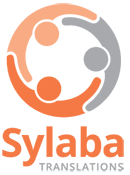In a world where accurate documentation is paramount, transcription services have become invaluable. Whether it’s for legal proceedings, medical records, academic research, or general business purposes, transcription plays a crucial role in converting spoken words into written text. In this comprehensive guide, we will explore the five different types of transcription services that cater to various industries and needs.
Are you struggling to find reliable transcription services tailored to your specific requirements? Perhaps you’re facing challenges related to accuracy, confidentiality, or turnaround time. Fear not, as we delve into the world of transcription and unravel solutions to common problems faced by individuals and businesses seeking transcription services.
Origin of Transcriptions
Transcription, in its essence, is the process of converting spoken words into written text. Its roots can be traced back to the age-old practice of scribes transcribing important speeches, agreements, and historical events. Over time, the evolution of technology has transformed transcription from a manual endeavor to a highly efficient and precise digital process.
Understanding the origin of transcription is crucial for appreciating its significance in today’s fast-paced world. From manuscripts to cutting-edge speech-to-text software, the journey of transcription highlights its adaptability and relevance across diverse eras.
Types of Transcription
Transcription services can be categorised into various types based on the nature of the content being transcribed and the specific requirements of the client. Here are some common types of transcription:
General Transcription
Scope: General transcription encompasses a broad range of industries and subject matters.
Content: Transcriptionists in this field transcribe everyday conversations, interviews, podcasts, and any other content that doesn’t fall into a specialised category.
Skills: It requires a versatile skill set, including a keen ear for different accents and the ability to capture the subtleties and nuances of communication accurately.
Legal Transcription
Scope: Legal transcription is a specialised service focused on the legal industry.
Content: Legal transcriptionists transcribe legal proceedings, court hearings, depositions, and other legal documents.
Precision: Precision is crucial, as the transcripts may serve as official records in legal proceedings. A deep understanding of legal terminology and procedures is essential for accuracy.
Medical Transcription:
Scope: Essential in the healthcare industry for documenting patient information, diagnoses, and treatment plans.
Content: Medical transcription involves transcribing dictated recordings by healthcare professionals into written documents.
Skills: Medical transcriptionists must possess a strong grasp of medical terminology, adhere to strict privacy regulations, and ensure the confidentiality and accuracy of medical records.
Academic Transcription
Scope: Supports the educational sector by transcribing academic content.
Content: Involves transcribing lectures, research interviews, seminars, and other educational materials.
Purpose: Helps students, researchers, and educators access accurate and searchable records of academic discussions and findings.
Business Transcription
Scope: Focuses on converting audio or video content related to corporate activities.
Content: Involves transcribing corporate meetings, conferences, interviews, and other business-related recordings.
Importance: Accurate business transcripts contribute to effective communication, aid in knowledge retention, and document important decisions within the corporate environment.
Each type of transcription serves a distinct purpose and requires specific skills and knowledge related to the respective industry or subject matter. Whether it’s legal, medical, academic, or business transcription, accuracy and attention to detail are fundamental in producing reliable written records.
Challenges in Transcription Services
Here are some key challenges associated with transcription services:
Accuracy Concerns
- Transcription accuracy is crucial, especially in fields such as legal, medical, or academic transcription where precision is vital. Accurate transcriptions are essential for maintaining the integrity of the content.
- Different accents, dialects, or background noise can pose challenges for transcriptionists, leading to potential errors in the transcribed text.
Confidentiality and Security Issues
- Transcription often involves handling sensitive information, especially in medical or legal contexts. Maintaining the confidentiality and security of the transcribed content is paramount.
- Transcription service providers need to implement robust security measures to protect data from unauthorised access, breaches, or leaks.
Turnaround Time Challenges
- Clients often expect quick turnaround times for transcriptions. Meeting tight deadlines can be challenging, especially when dealing with large volumes of audio or video content.
- Balancing speed with accuracy becomes crucial, as rushing through the transcription process can lead to errors.
Speaker Identification and Multiple Voices
- Distinguishing between speakers in multi-speaker recordings can be challenging, especially when speakers have similar voices or when the audio quality is poor.
- Accurate speaker identification is crucial, particularly in legal proceedings or business meetings, to ensure the context is properly understood.
Industry-specific Jargon and Technical Terms
- Transcriptionists may encounter industry-specific terminology and jargon that requires specialised knowledge. This is particularly relevant in fields such as medicine, law, or technology.
- Misinterpretation of specialized terms can lead to inaccuracies in the transcribed content.
Quality Control and Editing
- Ensuring consistent quality across transcripts is essential. Quality control measures, including proofreading and editing, are crucial to identifying and correcting errors.
- Establishing standardised quality assurance processes help maintain a high level of accuracy.
Integration with Technology
- Embracing and integrating new technologies, such as automatic speech recognition (ASR) systems, can be challenging. While these technologies can improve efficiency, they may not always provide the level of accuracy required, necessitating manual review and correction.
Cost and Pricing Models
- Pricing models for transcription services can vary, and clients may have different expectations regarding cost. Finding a balance between offering competitive pricing and ensuring a sustainable business model poses a constant challenge for transcription service providers.
Addressing these challenges requires a combination of skilled transcriptionists, advanced technology, and robust quality control processes. Continuous training, staying updated on industry trends, and investing in security measures are crucial for overcoming these obstacles.
Conclusion
Understanding the different types of transcription services is crucial for selecting the right solution to meet specific needs. Whether you’re in the legal, medical, academic, or business sector, transcription plays a vital role in maintaining accurate and accessible records.
If you’ve faced challenges finding reliable transcription services, look no further. Our professional transcription and translation services are tailored to your industry’s requirements, ensuring accuracy, confidentiality, and timely delivery. Take the first step towards seamless transcription solutions by exploring our website today.
Related Posts

Get a quote today
"*" indicates required fields
Subscribe today to receive the latest insights and updates from Sylaba Translations









